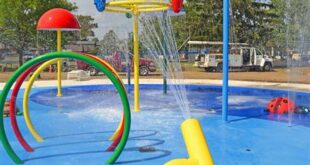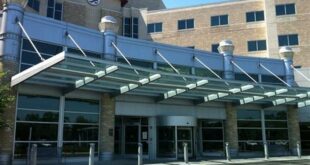Are you searching for a treatment facility that can assist with various substance abuse problems? Willow Springs Residential Treatment Facility can be the answer to your addiction struggles.
Editor’s Notes: Willow Springs Residential Treatment Facility is a well-known treatment center that can guide you on the path to recovery and long-term sobriety. To help our readers make informed decisions, we’ve conducted in-depth research and compiled this guide on Willow Springs Residential Treatment Facility.
Our in-depth analysis and research has led to the creation of this guide. This guide is designed to provide information about addiction, treatment options, and the benefits of choosing Willow Springs Residential Treatment Facility.
Here are some of the reasons why choosing Willow Springs Residential Treatment Facility might be the right decision for you:
- Individualized treatment plans that address your specific needs.
- A variety of therapies, including individual, group, and family therapy.
- Medication-assisted treatment to help manage withdrawal symptoms and cravings.
- A supportive and nurturing environment with a dedicated team of professionals.
- Aftercare planning to help you maintain your sobriety after you leave treatment.
If you’re struggling with addiction, don’t wait any longer to get help. Contact Willow Springs Residential Treatment Facility today to learn more about their programs and how they can help you achieve your recovery goals.
We hope this guide has been helpful. If you have any further questions, please don’t hesitate to contact us.
Willow Springs Residential Treatment Facility
Willow Springs Residential Treatment Facility provides comprehensive addiction treatment programs tailored to individual needs. Here are nine key aspects that set Willow Springs apart:
- Evidence-based treatment: Willow Springs uses proven methods backed by research.
- Individualized care: Treatment plans are customized to meet each client’s unique needs.
- Holistic approach: Treatment addresses the physical, mental, and emotional aspects of addiction.
- Trauma-informed care: Staff is trained to understand and address the impact of trauma on addiction.
- Medication-assisted treatment: Medications are used to manage withdrawal symptoms and cravings.
- Family involvement: Family members are encouraged to participate in the treatment process.
- Aftercare planning: Willow Springs provides support and resources to help clients maintain sobriety after treatment.
- Accredited facility: Willow Springs is accredited by The Joint Commission, demonstrating its commitment to quality care.
- Experienced staff: The staff at Willow Springs has extensive experience in addiction treatment.
These key aspects combine to create a supportive and nurturing environment where clients can focus on their recovery. Willow Springs Residential Treatment Facility is committed to providing individualized, evidence-based care to help clients achieve long-term sobriety.
Evidence-based treatment
Evidence-based treatment (EBT) is a cornerstone of Willow Springs Residential Treatment Facility’s approach to addiction treatment. EBT refers to interventions that have been scientifically proven to be effective in treating addiction. These treatments are based on research and data, rather than on personal beliefs or anecdotal evidence.
There are many benefits to using EBT in addiction treatment. First, EBT is more likely to be effective than treatments that are not based on research. Second, EBT can help to improve the quality of care that patients receive. Third, EBT can help to reduce the cost of addiction treatment.
Willow Springs Residential Treatment Facility uses a variety of EBTs, including:
- Cognitive-behavioral therapy (CBT)
- Motivational interviewing (MI)
- Contingency management (CM)
- Medication-assisted treatment (MAT)
These therapies have been shown to be effective in treating addiction and helping people to achieve long-term sobriety.
The use of EBT is one of the things that sets Willow Springs Residential Treatment Facility apart from other addiction treatment centers. Willow Springs is committed to providing evidence-based care that is tailored to the individual needs of each patient.
| Evidence-based treatment | Benefits |
|---|---|
| More likely to be effective | Improved quality of care |
| Reduced cost of treatment | Tailored to individual needs |
Individualized care
Every person who struggles with addiction is unique, with their own individual needs and challenges. That’s why Willow Springs Residential Treatment Facility offers individualized care plans that are tailored to each client’s specific situation.
There are many benefits to individualized care. First, it allows the treatment team to focus on the specific needs of each client. This means that clients can receive the most effective treatment for their addiction.
Second, individualized care helps to create a strong therapeutic relationship between the client and their treatment team. When clients feel like they are understood and that their needs are being met, they are more likely to engage in treatment and achieve positive outcomes.
Third, individualized care can help to reduce the risk of relapse. When clients have a treatment plan that is tailored to their specific needs, they are more likely to stay sober after completing treatment.
Here are some examples of how individualized care is provided at Willow Springs Residential Treatment Facility:
- Assessment: Before developing a treatment plan, the treatment team will conduct a comprehensive assessment of the client’s needs. This assessment will include a review of the client’s medical history, mental health history, and substance use history.
- Treatment planning: Once the assessment is complete, the treatment team will work with the client to develop a personalized treatment plan. This plan will outline the specific goals of treatment, the types of therapies that will be used, and the length of treatment.
- Treatment delivery: The treatment team will work with the client to implement the treatment plan. This may involve individual therapy, group therapy, medication-assisted treatment, and other therapies.
- Monitoring and evaluation: The treatment team will monitor the client’s progress throughout treatment. This will help to ensure that the client is making progress towards their goals and that the treatment plan is being adjusted as needed.
Individualized care is an essential component of addiction treatment. It allows the treatment team to focus on the specific needs of each client, which can lead to better outcomes and a reduced risk of relapse.
| Individualized care | Benefits |
|---|---|
| Focus on specific needs | Strong therapeutic relationship |
| Reduced risk of relapse | Improved outcomes |
Holistic approach
Addiction is a complex disease that affects the physical, mental, and emotional health of individuals. Traditional addiction treatment programs often focus solely on the physical aspects of addiction, such as detoxification and medication-assisted treatment. However, a holistic approach to addiction treatment addresses all aspects of the disease, including the physical, mental, and emotional.
Willow Springs Residential Treatment Facility takes a holistic approach to addiction treatment. This means that the treatment team addresses the physical, mental, and emotional needs of each client. The treatment team uses a variety of therapies to address these needs, including individual therapy, group therapy, family therapy, and medication-assisted treatment.
There are many benefits to taking a holistic approach to addiction treatment. First, it allows the treatment team to address all aspects of the disease. This can lead to better outcomes and a reduced risk of relapse. Second, a holistic approach can help to improve the quality of life for people in recovery. By addressing the mental and emotional aspects of addiction, people in recovery can learn how to cope with the challenges of sobriety and live a fulfilling life.
Here is an example of how a holistic approach to addiction treatment can help people in recovery:
- Physical: A holistic approach to addiction treatment can help to improve the physical health of people in recovery. This can include providing medical care, nutritional counseling, and exercise therapy.
- Mental: A holistic approach to addiction treatment can help to improve the mental health of people in recovery. This can include providing individual therapy, group therapy, and family therapy.
- Emotional: A holistic approach to addiction treatment can help to improve the emotional health of people in recovery. This can include providing coping skills training, stress management training, and relapse prevention training.
Taking a holistic approach to addiction treatment is essential for long-term recovery. By addressing all aspects of the disease, Willow Springs Residential Treatment Facility can help people in recovery achieve lasting sobriety and live a fulfilling life.
| Holistic approach | Benefits |
|---|---|
| Addresses all aspects of addiction | Better outcomes and reduced risk of relapse |
| Improves quality of life | Teaches coping skills and promotes a fulfilling life |
Trauma-informed care
Trauma-informed care is an approach to addiction treatment that recognizes the role that trauma can play in the development and maintenance of addiction. Staff at Willow Springs Residential Treatment Facility are trained to understand the impact of trauma on addiction and to provide care that is sensitive to the needs of trauma survivors.
-
Understanding the impact of trauma on addiction:
Trauma can have a profound impact on the brain and body, making people more vulnerable to addiction. Trauma can also lead to the development of mental health disorders, such as anxiety and depression, which can further contribute to addiction.
-
Creating a safe and supportive environment:
Trauma survivors often feel unsafe and unsupported. Willow Springs Residential Treatment Facility provides a safe and supportive environment where trauma survivors can feel comfortable talking about their experiences and working through their trauma.
-
Using trauma-informed therapies:
There are a variety of trauma-informed therapies that can be used to help trauma survivors heal from their experiences and overcome addiction. These therapies include cognitive-behavioral therapy, eye movement desensitization and reprocessing (EMDR), and somatic experiencing.
-
Providing peer support:
Peer support can be an important part of recovery for trauma survivors. Willow Springs Residential Treatment Facility provides opportunities for trauma survivors to connect with each other and share their experiences.
Trauma-informed care is an essential component of addiction treatment. By understanding the impact of trauma on addiction and providing care that is sensitive to the needs of trauma survivors, Willow Springs Residential Treatment Facility can help trauma survivors achieve lasting sobriety and live a fulfilling life.
Medication-assisted treatment
Medication-assisted treatment (MAT) is a type of addiction treatment that uses medications to manage withdrawal symptoms and cravings. MAT can be used to treat addiction to opioids, alcohol, and tobacco.
MAT is an important component of addiction treatment at Willow Springs Residential Treatment Facility. Medications can help to reduce the severity of withdrawal symptoms, which can make it easier for people to stay in treatment and focus on their recovery.
There are a variety of medications that can be used for MAT, including methadone, buprenorphine, and naltrexone. The type of medication that is used will depend on the individual’s needs.
MAT is safe and effective, and it can help people to achieve long-term sobriety. However, it is important to remember that MAT is not a cure for addiction. It is only one part of a comprehensive treatment plan that should also include counseling, therapy, and support groups.
If you are struggling with addiction, talk to your doctor about MAT. MAT can help you to get your life back on track.
| Medication-assisted treatment | Benefits |
|---|---|
| Reduces withdrawal symptoms | Makes it easier to stay in treatment |
| Helps to prevent relapse | Can be used to treat addiction to opioids, alcohol, and tobacco |
Family involvement
Family involvement plays a crucial role in the treatment process at Willow Springs Residential Treatment Facility. Research has consistently shown that including family members in treatment improves outcomes for individuals struggling with addiction.
- Family education: Family members are educated about addiction, its effects, and the treatment process. This helps them to understand their loved one’s struggles and to provide support.
- Family therapy: Family therapy sessions provide a safe and supportive environment for family members to communicate their feelings, concerns, and needs. This can help to improve family relationships and to create a more positive home environment for the individual in recovery.
- Family support groups: Family support groups provide a forum for family members to share their experiences and to learn from each other. This can help to reduce feelings of isolation and to provide emotional support.
- Family involvement in aftercare planning: Family members are involved in the development of aftercare plans, which can help to ensure that the individual in recovery has a strong support system in place after leaving treatment.
Willow Springs Residential Treatment Facility recognizes the importance of family involvement in the treatment process. By encouraging family members to participate in treatment, Willow Springs helps to create a more supportive and nurturing environment for individuals in recovery.
Aftercare planning
Aftercare planning is an essential part of addiction treatment at Willow Springs Residential Treatment Facility. The goal of aftercare planning is to help clients maintain sobriety after they leave treatment and return to their everyday lives.
-
Individualized aftercare plans: Aftercare plans are tailored to each client’s individual needs and goals. They may include a variety of services, such as:
- Counseling
- Support groups
- Medication-assisted treatment
- Vocational training
- Housing assistance
-
Referral to community resources: Willow Springs Residential Treatment Facility also helps clients to connect with community resources that can provide ongoing support after treatment. These resources may include:
- Sober living homes
- Outpatient treatment programs
- Support groups
- Job training programs
- Housing assistance
- Long-term follow-up: Willow Springs Residential Treatment Facility provides long-term follow-up care to help clients stay on track after treatment. This may include regular check-ins with a counselor or therapist, as well as participation in support groups.
- Family involvement: Family members are encouraged to participate in the aftercare planning process. This can help to ensure that the client has a strong support system in place after leaving treatment.
Aftercare planning is an essential part of addiction treatment at Willow Springs Residential Treatment Facility. By providing individualized aftercare plans, connecting clients with community resources, and providing long-term follow-up care, Willow Springs helps clients to maintain sobriety and achieve long-term recovery.
Accredited facility
Accreditation by The Joint Commission is a prestigious achievement that demonstrates Willow Springs Residential Treatment Facility’s commitment to providing high-quality addiction treatment services. The Joint Commission is an independent, non-profit organization that accredits healthcare organizations that meet rigorous standards of quality and safety.
To achieve accreditation, Willow Springs Residential Treatment Facility underwent a rigorous review process that assessed the facility’s compliance with The Joint Commission’s standards. These standards cover a wide range of areas, including patient care, safety, and quality improvement.
Willow Springs Residential Treatment Facility’s accreditation by The Joint Commission demonstrates its commitment to providing high-quality, safe, and effective addiction treatment services. This accreditation is a valuable asset for Willow Springs and its clients, as it provides assurance that the facility meets the highest standards of care.
Here are some of the benefits of choosing an accredited addiction treatment facility like Willow Springs Residential Treatment Facility:
- Higher quality of care: Accredited facilities are required to meet rigorous standards of quality and safety, which means that clients can expect to receive high-quality care.
- Improved patient safety: Accredited facilities are required to have policies and procedures in place to protect patient safety.
- Better outcomes: Studies have shown that patients who receive care at accredited facilities are more likely to have positive outcomes.
- Increased accountability: Accredited facilities are subject to regular audits and reviews, which helps to ensure that they are providing high-quality care.
If you are looking for an addiction treatment facility, it is important to choose an accredited facility like Willow Springs Residential Treatment Facility. Accreditation is a valuable indicator of quality and safety, and it can give you peace of mind knowing that you are receiving the best possible care.
| Benefit | Explanation |
|---|---|
| Higher quality of care | Accredited facilities are required to meet rigorous standards of quality and safety, which means that clients can expect to receive high-quality care. |
| Improved patient safety | Accredited facilities are required to have policies and procedures in place to protect patient safety. |
| Better outcomes | Studies have shown that patients who receive care at accredited facilities are more likely to have positive outcomes. |
| Increased accountability | Accredited facilities are subject to regular audits and reviews, which helps to ensure that they are providing high-quality care. |
Experienced staff
The staff at Willow Springs Residential Treatment Facility has extensive experience in addiction treatment. This experience is essential for providing high-quality care to clients. Addiction is a complex disease that requires specialized knowledge and expertise to treat effectively.
The staff at Willow Springs has a deep understanding of the addiction process and the challenges that clients face. They are trained in evidence-based treatment methods and have the experience to tailor treatment plans to each client’s individual needs.
In addition to their clinical expertise, the staff at Willow Springs is also committed to providing compassionate and supportive care. They understand that addiction is a difficult disease, and they are dedicated to helping clients achieve lasting recovery.
Here are some examples of the benefits of having an experienced staff at an addiction treatment facility:
- Improved patient outcomes: Studies have shown that patients who are treated by experienced staff are more likely to achieve positive outcomes, such as long-term sobriety.
- Increased patient satisfaction: Patients who are treated by experienced staff are more likely to be satisfied with their care and to feel confident in their recovery.
- Reduced risk of relapse: Patients who are treated by experienced staff are less likely to relapse after completing treatment.
If you are looking for an addiction treatment facility, it is important to choose a facility with an experienced staff. The staff at Willow Springs Residential Treatment Facility has the knowledge, skills, and experience to help you achieve lasting recovery.
| Benefit | Explanation |
|---|---|
| Improved patient outcomes | Patients who are treated by experienced staff are more likely to achieve positive outcomes, such as long-term sobriety. |
| Increased patient satisfaction | Patients who are treated by experienced staff are more likely to be satisfied with their care and to feel confident in their recovery. |
| Reduced risk of relapse | Patients who are treated by experienced staff are less likely to relapse after completing treatment. |
Frequently Asked Questions (FAQs) about Willow Springs Residential Treatment Facility
This section addresses common concerns and misconceptions about Willow Springs Residential Treatment Facility. It provides concise yet informative answers to frequently asked questions to enhance understanding.
Question 1: What makes Willow Springs Residential Treatment Facility stand out from other addiction treatment centers?
Willow Springs distinguishes itself through its commitment to individualized care plans, evidence-based treatment approaches, and holistic focus addressing the physical, mental, and emotional aspects of addiction. Its experienced staff, trauma-informed care, family involvement, and aftercare planning further set it apart, ensuring a comprehensive and supportive recovery journey.
Question 2: How does Willow Springs approach addiction treatment?
Willow Springs embraces a comprehensive approach, recognizing addiction as a complex disease. Its treatment plans are tailored to each client’s unique needs and incorporate a range of evidence-based therapies, including cognitive-behavioral therapy, motivational interviewing, contingency management, and medication-assisted treatment.
Question 3: How does Willow Springs ensure the safety and well-being of its clients?
Willow Springs prioritizes the safety and well-being of its clients through its accreditation by The Joint Commission, demonstrating its adherence to rigorous quality and safety standards. Its experienced staff is trained in evidence-based treatment methods and committed to providing compassionate and supportive care, fostering a nurturing and recovery-focused environment.
Question 4: How does Willow Springs address the underlying causes of addiction?
Willow Springs takes a holistic approach that recognizes the multidimensional nature of addiction. It employs trauma-informed care, understanding the impact of trauma on addiction, and offers individual and group therapy to delve into the underlying emotional and psychological factors contributing to substance use disorders.
Question 5: How does Willow Springs prepare clients for long-term recovery?
Willow Springs emphasizes the importance of aftercare planning, actively involving clients and their families in developing individualized plans that provide ongoing support and resources. The facility offers long-term follow-up care, including regular check-ins and support group participation, to empower clients in maintaining their sobriety and achieving lasting recovery.
Question 6: How does family involvement contribute to treatment at Willow Springs?
Willow Springs recognizes the crucial role of family in the recovery process. It encourages family members to participate in treatment through family education, family therapy, and support groups. By actively involving families, Willow Springs creates a supportive network that fosters healing, understanding, and lasting recovery for both the client and their loved ones.
In conclusion, Willow Springs Residential Treatment Facility stands out as a reputable and comprehensive addiction treatment center dedicated to providing individualized, evidence-based, and holistic care. Its commitment to safety, well-being, and long-term recovery makes it an ideal choice for individuals seeking a transformative journey towards sobriety and lasting health.
Transitioning to the next article section: For further insights into addiction treatment options and resources, explore the provided links to reputable organizations and informative articles.
Tips from Willow Springs Residential Treatment Facility
Willow Springs Residential Treatment Facility, a leading provider of addiction treatment services, offers valuable tips to support individuals on their recovery journey. These tips are based on the facility’s expertise in evidence-based treatment and a holistic approach to addiction.
Tip 1: Embrace Individualized Treatment:
Every individual’s addiction journey is unique, and so should their treatment plan. Willow Springs emphasizes tailored treatment plans that address specific needs, goals, and circumstances, increasing the likelihood of long-term success.
Tip 2: Utilize Evidence-Based Therapies:
Willow Springs employs proven and effective therapeutic approaches, such as cognitive-behavioral therapy and motivational interviewing, to help clients understand their addiction patterns, develop coping mechanisms, and build resilience.
Tip 3: Focus on Holistic Healing:
Addiction affects the physical, mental, and emotional well-being. Willow Springs adopts a holistic approach that addresses all aspects of the individual, promoting overall health and recovery.
Tip 4: Seek Trauma-Informed Care:
Trauma can be a contributing factor to addiction. Willow Springs provides trauma-informed care, ensuring that clients feel safe, respected, and supported as they navigate the challenges of recovery.
Tip 5: Engage Family and Support Systems:
Family and loved ones play a crucial role in recovery. Willow Springs encourages their involvement through family education, therapy, and support groups, fostering a supportive network for clients.
Tip 6: Plan for Aftercare:
Recovery is an ongoing journey that extends beyond residential treatment. Willow Springs emphasizes aftercare planning, providing clients with resources, support groups, and follow-up care to maintain sobriety and prevent relapse.
Tip 7: Utilize Medication-Assisted Treatment (MAT):
MAT can be a valuable tool in addiction treatment, helping to manage withdrawal symptoms and cravings. Willow Springs offers MAT as part of its comprehensive treatment plans, when appropriate.
Tip 8: Maintain a Positive Mindset:
Recovery requires resilience and a positive outlook. Willow Springs encourages clients to cultivate a growth mindset, focusing on progress rather than perfection, and to seek support when needed.
Summary of key takeaways or benefits:
By incorporating these tips into their recovery journey, individuals can increase their chances of achieving lasting sobriety and living a fulfilling life free from addiction.
Transition to the article’s conclusion:
Willow Springs Residential Treatment Facility is committed to providing comprehensive and compassionate addiction treatment. By following these tips, individuals can empower themselves on their path to recovery and well-being.
Conclusion
Willow Springs Residential Treatment Facility is a beacon of hope for individuals seeking recovery from addiction. Through its unwavering commitment to individualized, evidence-based, and holistic care, Willow Springs empowers clients to reclaim their lives and achieve long-term sobriety.
The facility’s experienced staff, comprehensive treatment programs, and focus on the physical, mental, and emotional well-being of clients create a nurturing and supportive environment conducive to healing and growth. By embracing a trauma-informed approach, involving family systems, and providing aftercare planning, Willow Springs goes above and beyond in ensuring the long-term success of its clients.
Choosing Willow Springs Residential Treatment Facility is an investment in a brighter future, free from the shackles of addiction. Its commitment to excellence and dedication to providing compassionate care make it a trusted choice for individuals seeking a transformative recovery journey.







